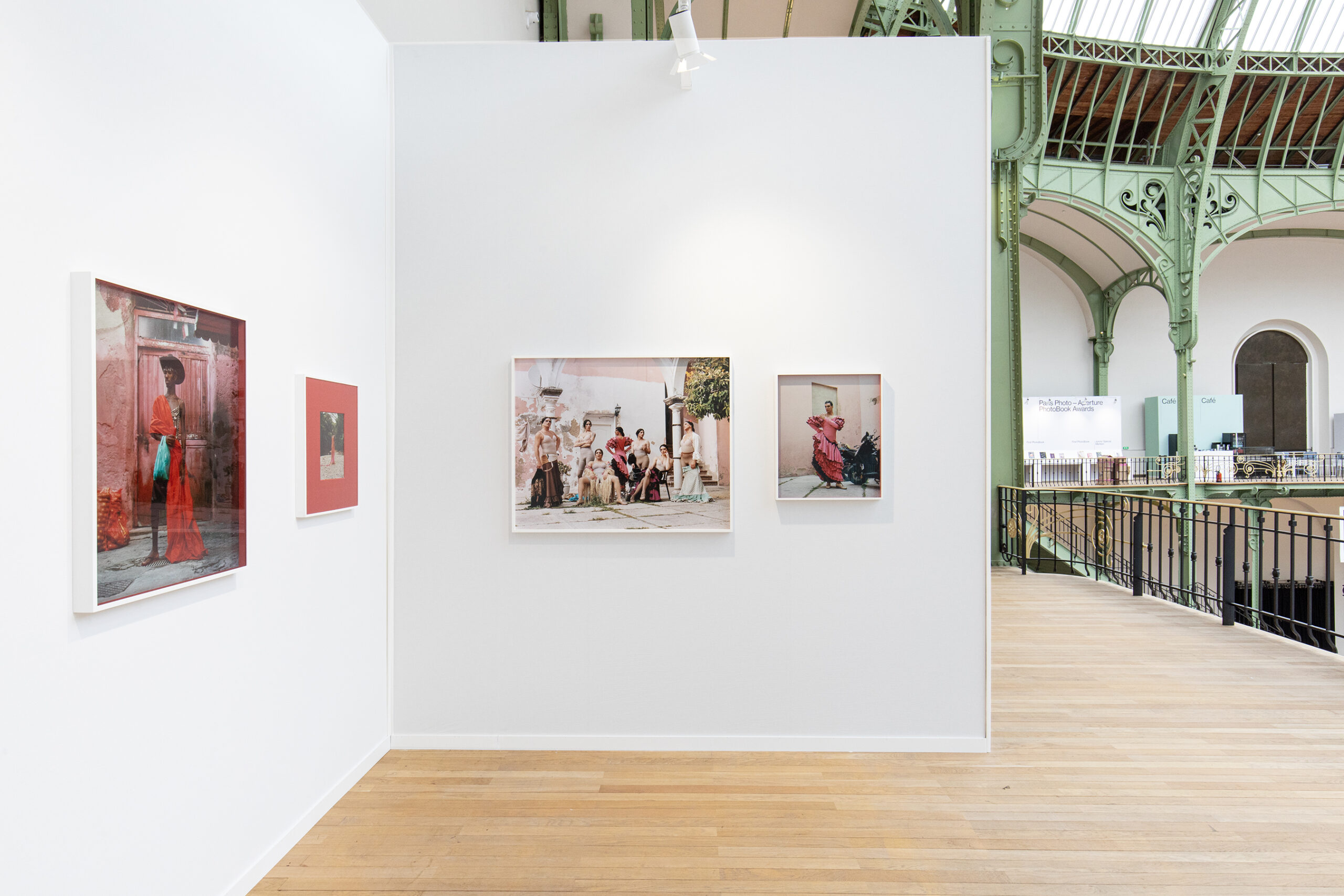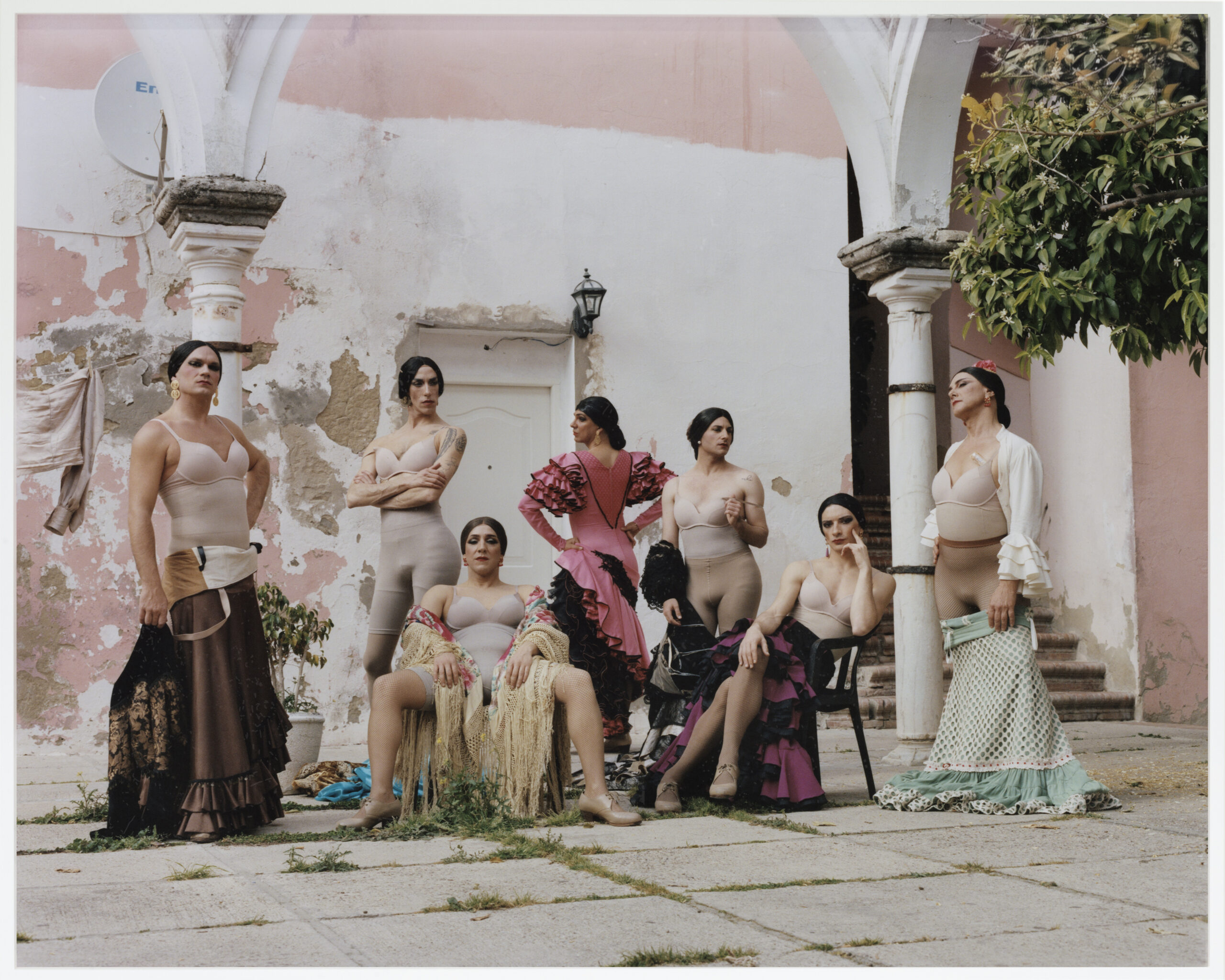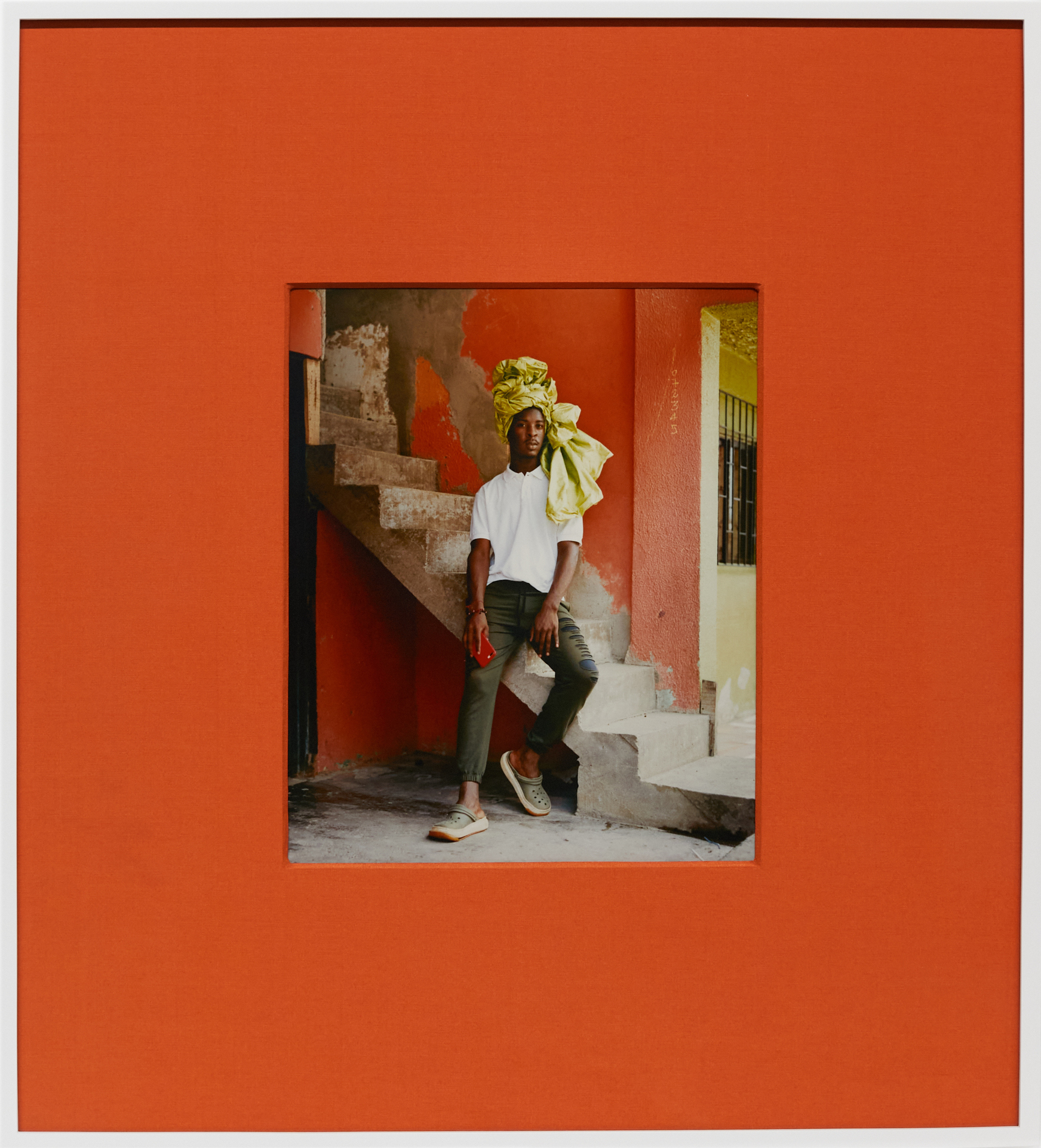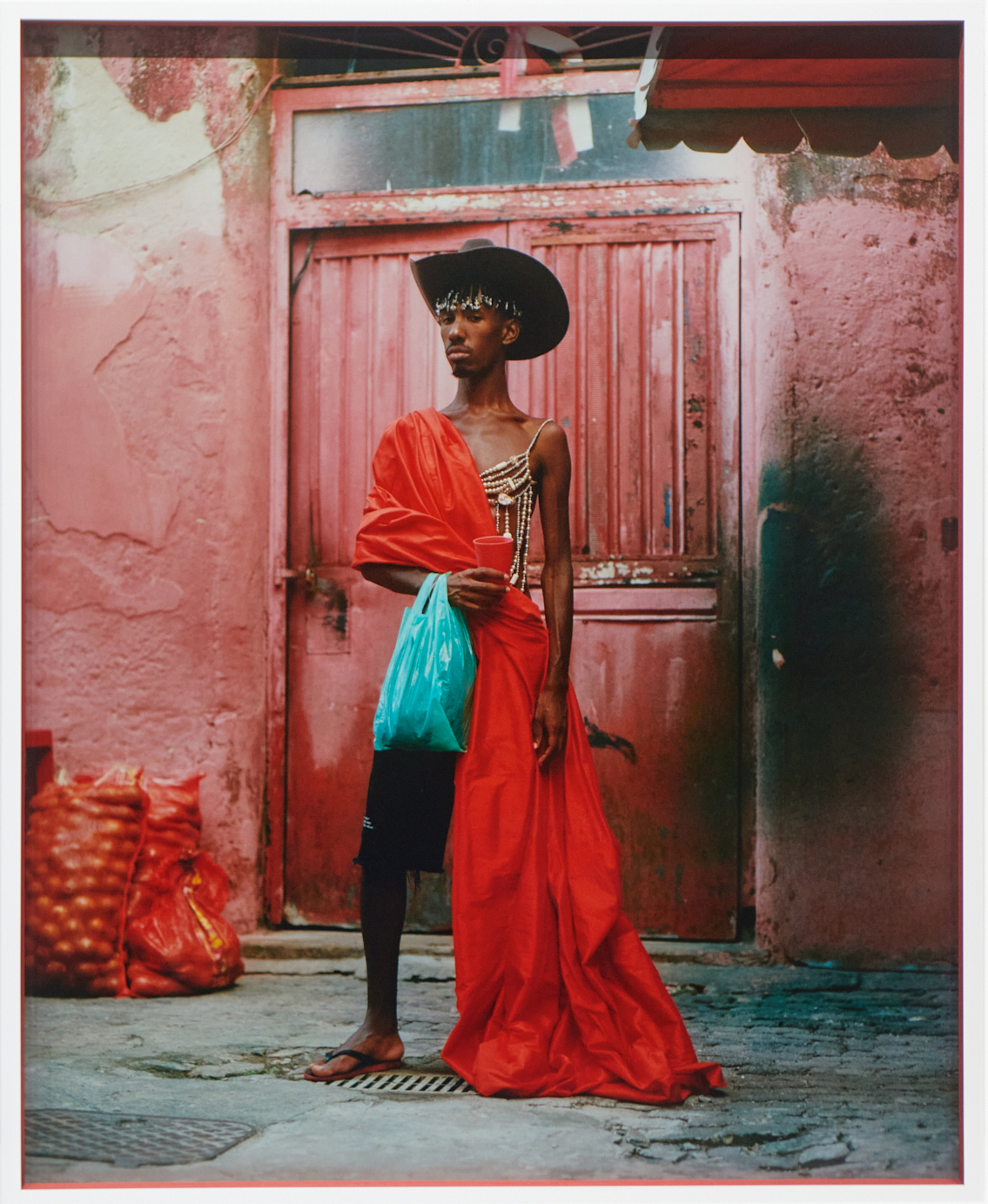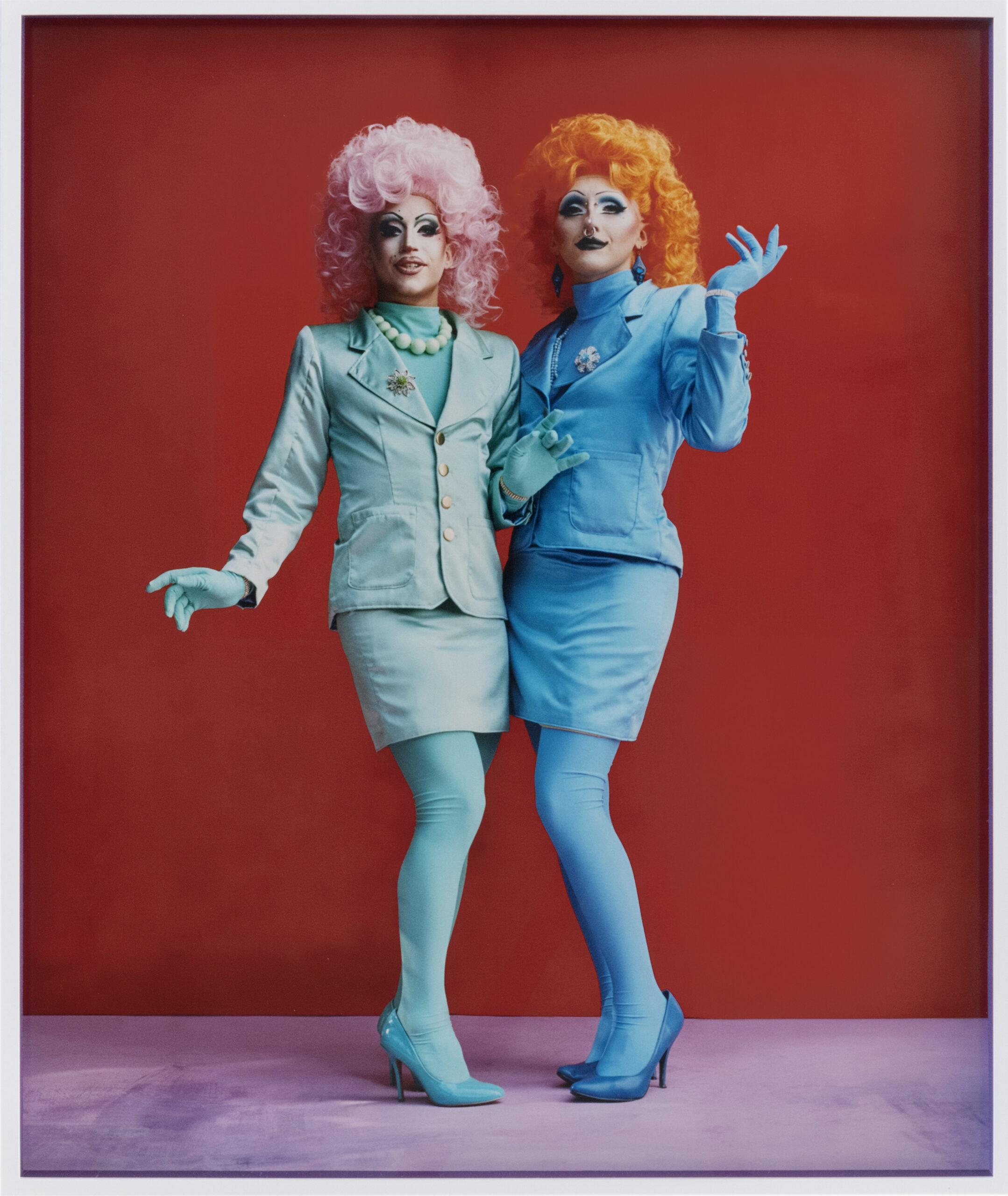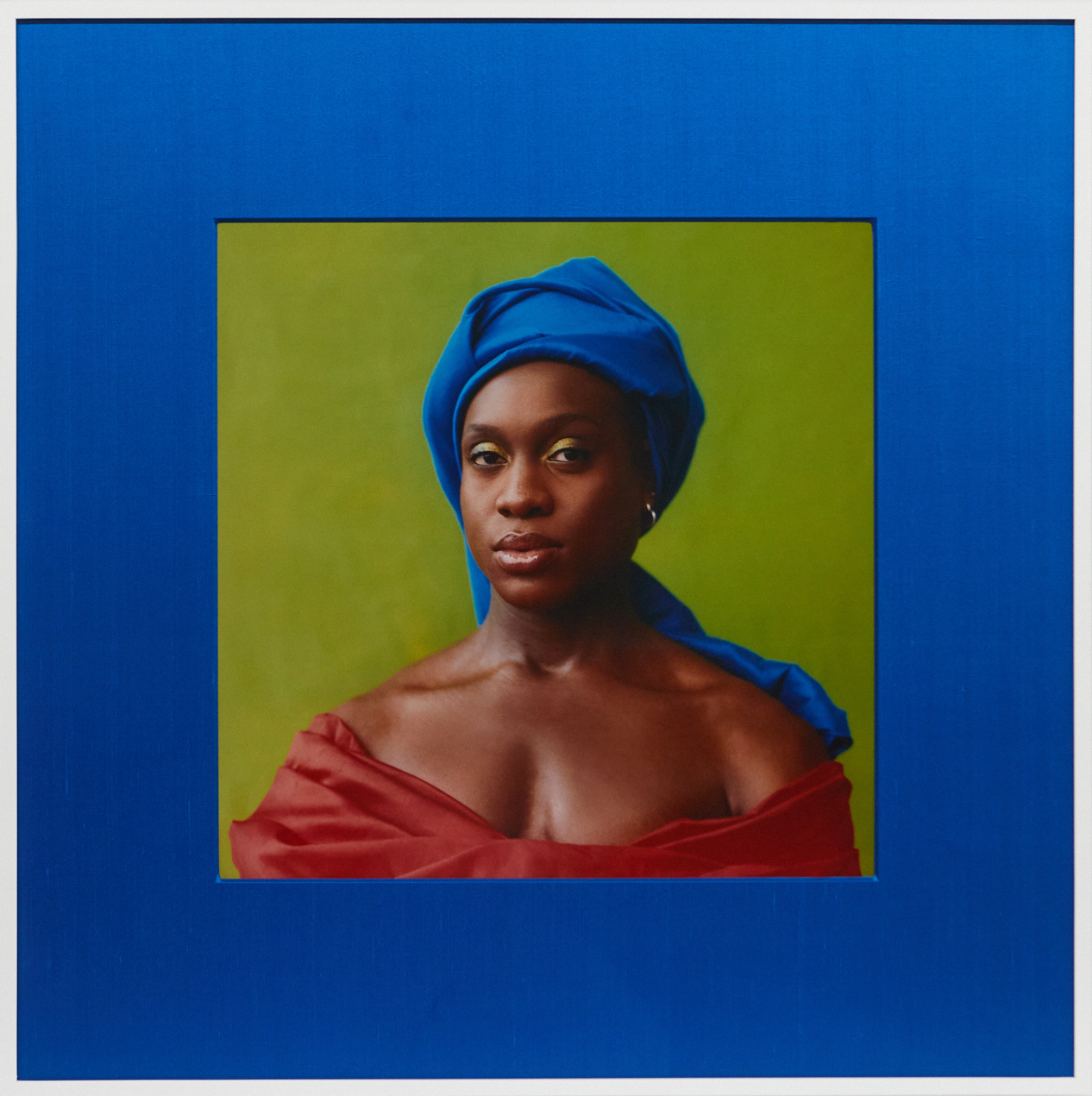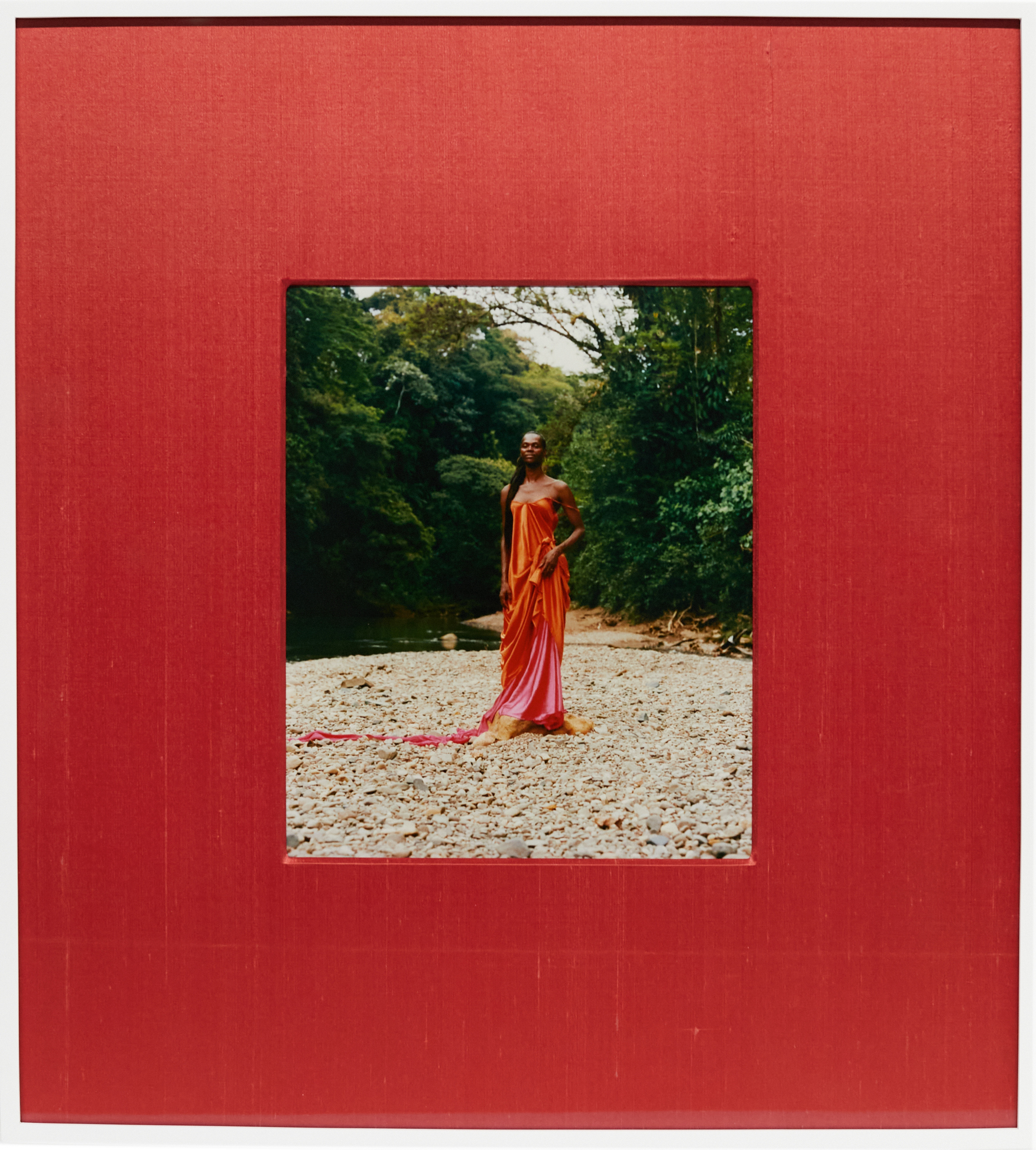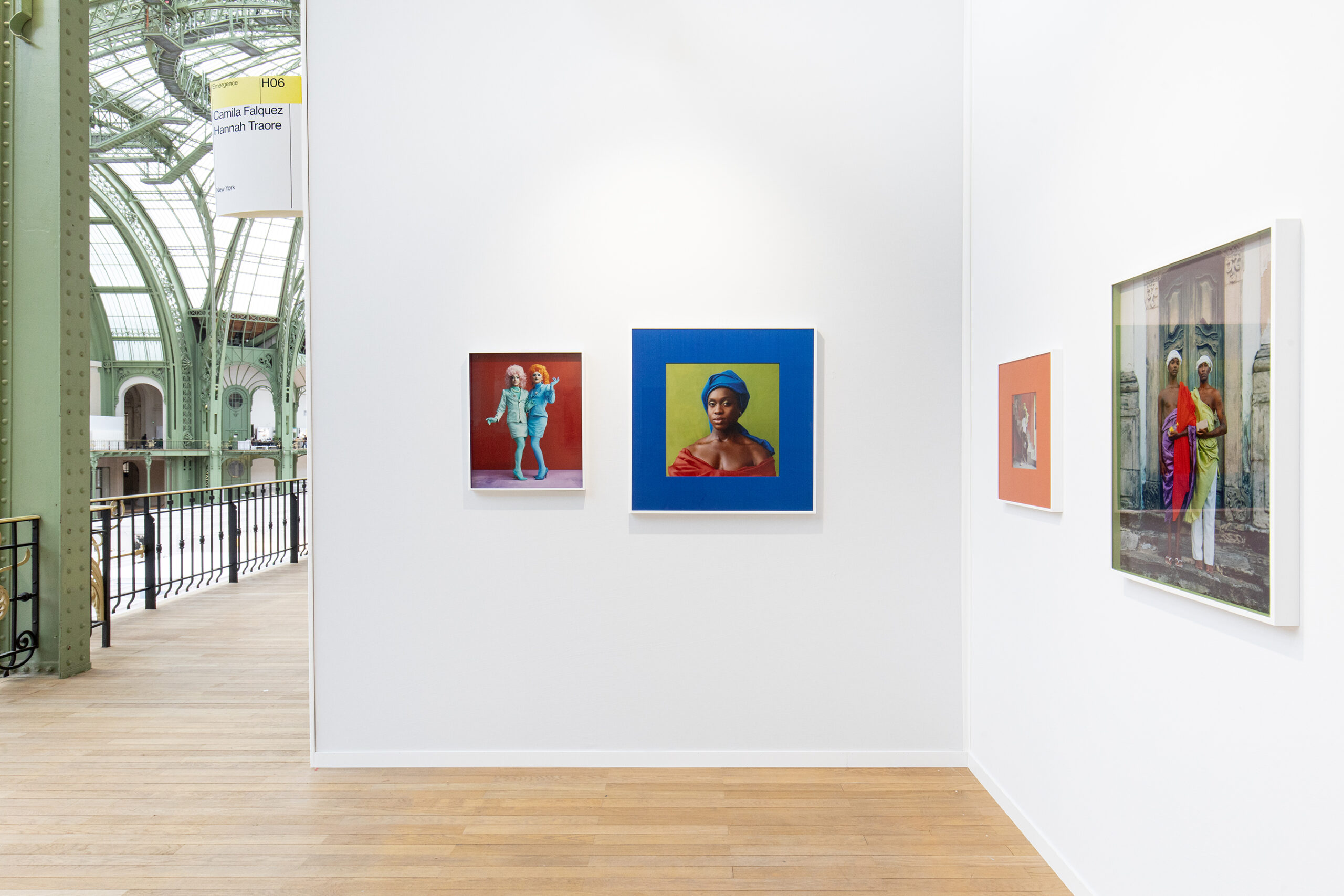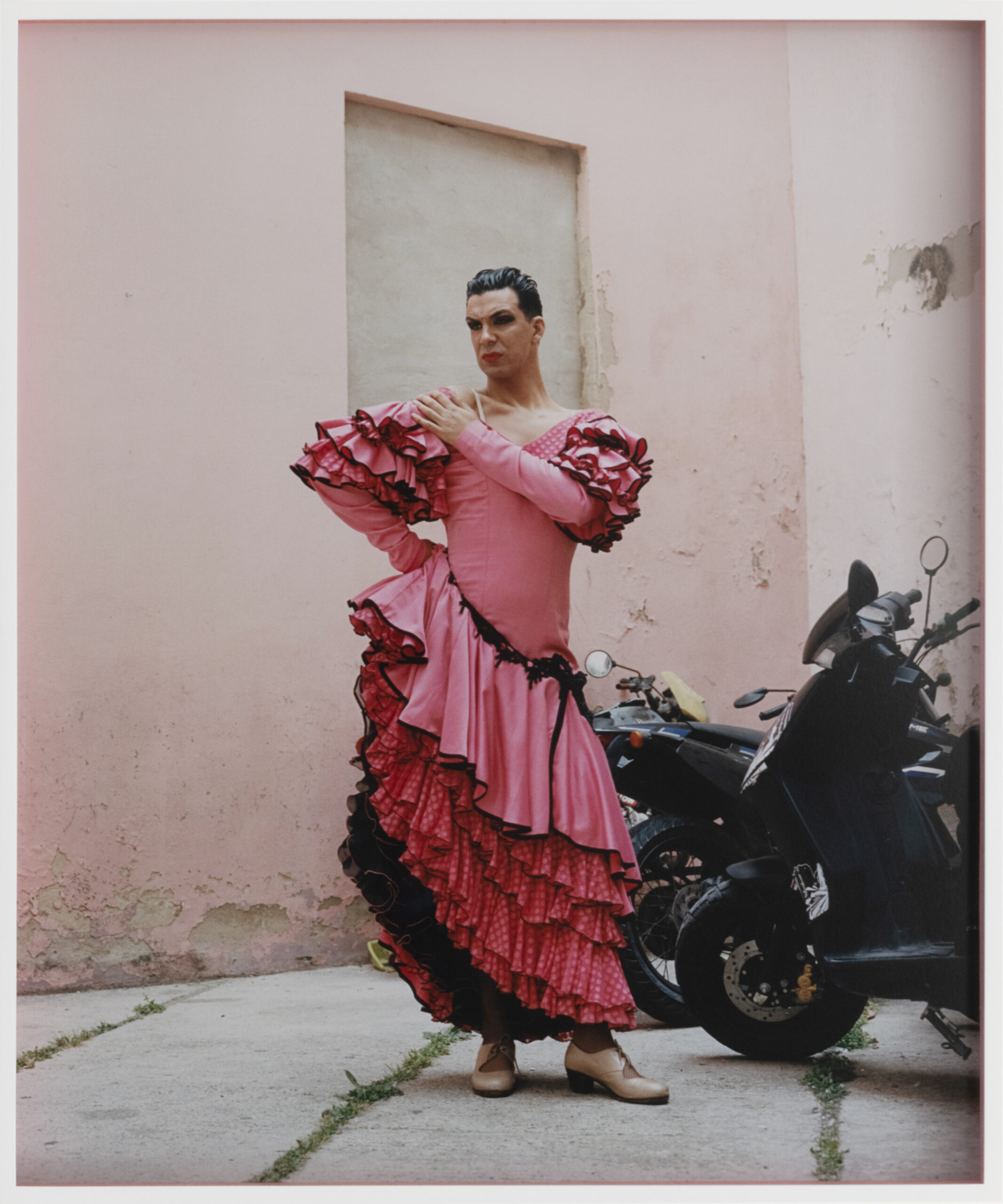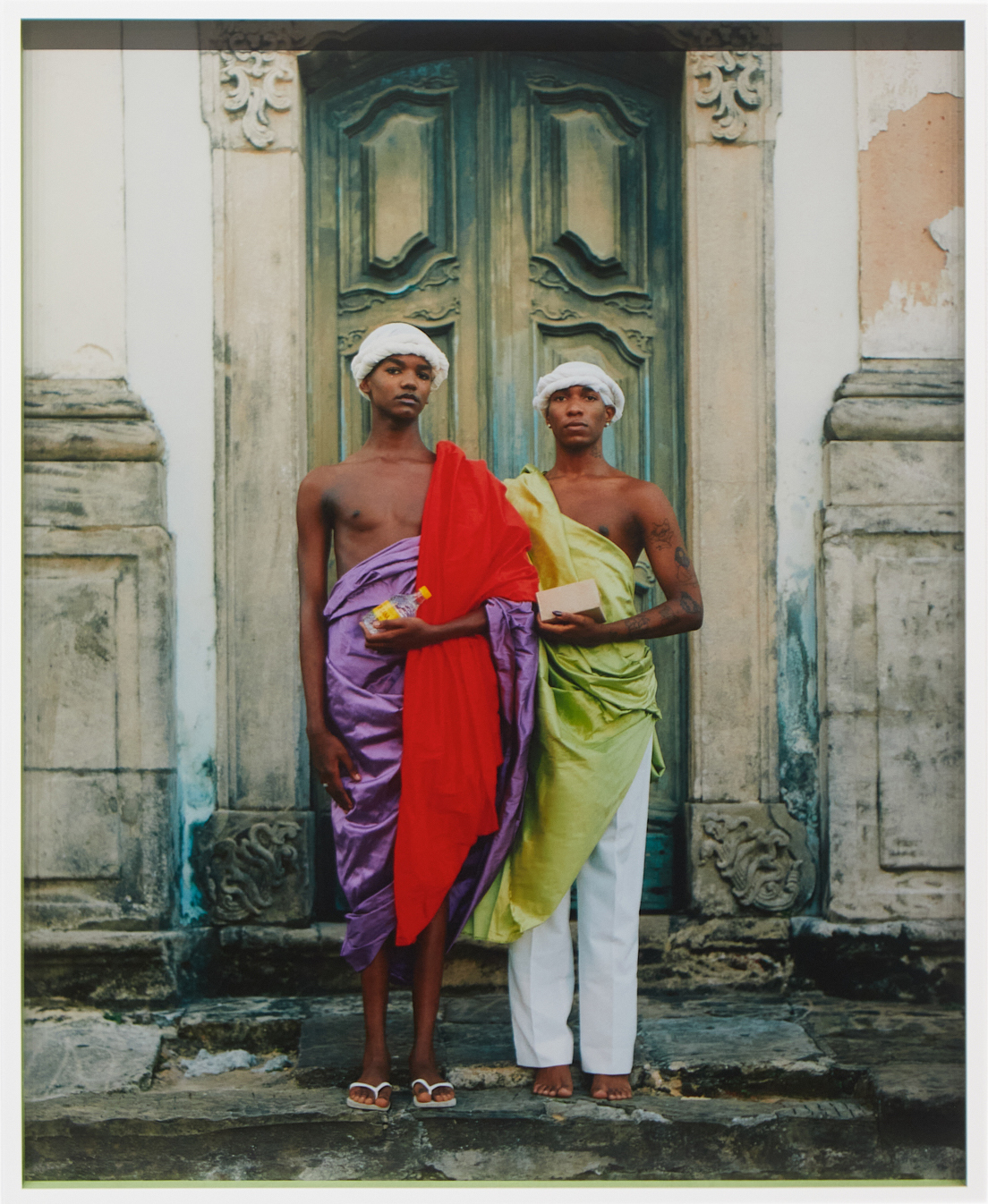
Hannah Traore Gallery is pleased to present a selection of works by Camila Falquez at Paris Photo. Born in Mexico and raised in Spain, Colombian photographer Camila Falquez creates photographs that harness the traditions of fashion and portrait photography to honor a contemporary spectrum of diversity.
Channeling the conventions of surrealism with a vibrant color palette, Falquez’s portraits are as much painterly productions as they are photographic, or even performative – she paints her own sets, creates the props, and employs bold-colored fabrics to lend these works an added layer of regality. Falquez reinterprets the traditional use of draped fabric in Western painting, transforming it into a symbol that challenges and redefines concepts of power and beauty.
All unique editions, the portraits in this presentation stem from five of Falquez’s ambitious projects: Compañerx (2023–2024), Being (2018–ongoing), Arewa (2021–ongoing), and The Orishas (2023– ongoing). Compañerx incorporates photography, protest art, and video within the context of Colombia’s first bill to protect trans and nonbinary individuals. Made in collaboration with Plataforma Ley Integral Tran, writer Cesar Vallejo, and stylist Lorena Maza, the series was originally shown in Bogotá in July 2024. Bushwig Grows Up was the title of the 2021 New York Times article article that Camila Falquez was commissioned to photograph for. The article honored the 10 year anniversary of Bushwig, the annual end of summer drag weekend in Bushwick, NYC. Falquez brought hand painted backdrops to Bushwick in order to photograph each Queen in front of their perfect colour. Arewa is a portrait series documenting the close relationship between Falquez and Arewa Basit, a trans performer and activist in New York City. This collaboration delves into the physicality of the trans experience and the process of self-discovery and becoming. The Orishas is an ongoing exploration of Latin American religious iconography within the African diaspora and its connection to gender identity. The series currently spans Brazil, Cuba, and Puerto Rico, investigating specific deities and religious figures in the Caribbean and Latin America and their potential to express ideas of freedom through a queer perspective. Manuel Liñán and his company were captured by Camila for the the New York Times. The portraits were taken in celebration of the show “Viva!” in Jerez, Spain. Executed entirely in Drag, the show featured six extraordinary dancers in colorful shawls known as mantones, with their hair styled with decorative combs and flowers. “Viva!” has been widely embraced and by audiences and critics since its debut.
Hannah Traore Gallery is pleased to present a selection of works by Camila Falquez at Paris Photo. Born in Mexico and raised in Spain, Colombian photographer Camila Falquez creates photographs that harness the traditions of fashion and portrait photography to honor a contemporary spectrum of diversity.
Channeling the conventions of surrealism with a vibrant color palette, Falquez’s portraits are as much painterly productions as they are photographic, or even performative – she paints her own sets, creates the props, and employs bold-colored fabrics to lend these works an added layer of regality. Falquez reinterprets the traditional use of draped fabric in Western painting, transforming it into a symbol that challenges and redefines concepts of power and beauty.
All unique editions, the portraits in this presentation stem from five of Falquez’s ambitious projects: Compañerx (2023–2024), Being (2018–ongoing), Arewa (2021–ongoing), and The Orishas (2023– ongoing). Compañerx incorporates photography, protest art, and video within the context of Colombia’s first bill to protect trans and nonbinary individuals. Made in collaboration with Plataforma Ley Integral Tran, writer Cesar Vallejo, and stylist Lorena Maza, the series was originally shown in Bogotá in July 2024. Bushwig Grows Up was the title of the 2021 New York Times article article that Camila Falquez was commissioned to photograph for. The article honored the 10 year anniversary of Bushwig, the annual end of summer drag weekend in Bushwick, NYC. Falquez brought hand painted backdrops to Bushwick in order to photograph each Queen in front of their perfect colour. Arewa is a portrait series documenting the close relationship between Falquez and Arewa Basit, a trans performer and activist in New York City. This collaboration delves into the physicality of the trans experience and the process of self-discovery and becoming. The Orishas is an ongoing exploration of Latin American religious iconography within the African diaspora and its connection to gender identity. The series currently spans Brazil, Cuba, and Puerto Rico, investigating specific deities and religious figures in the Caribbean and Latin America and their potential to express ideas of freedom through a queer perspective. Manuel Liñán and his company were captured by Camila for the the New York Times. The portraits were taken in celebration of the show “Viva!” in Jerez, Spain. Executed entirely in Drag, the show featured six extraordinary dancers in colorful shawls known as mantones, with their hair styled with decorative combs and flowers. “Viva!” has been widely embraced and by audiences and critics since its debut.
